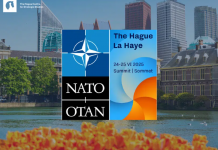Let’s face it, to ask today such a question is not even provocative. What initially was considered a financial crisis and then sovereign debt crisis has turned into a deep institutional political and morality crisis of a project considered over the years very successful – the European Union.
As a Union, mainly based on principles and values, the European Union is likely to collapse in a process of re-nationalization. It is true that the cause of this process is the sovereign debt crisis. It seems that the apparent prosperity of a considerable part of Europe was unsustainable, based on the loans at the expense of future generations. We are witnessing a process of massive deleverage” that ends a long period of financial excesses. The first victim seems to be the euro, but not only – the crisis of Europe as a prestige area of prosperity, social harmony and competitive leadership. The humility of the discussions with China and Russia, the conditions to save Europe are suffocating for Europeans pride. How long will they be able to refuse the offer? Not even IMF is able to come to the rescue.
Another latent side, but no less dangerous, is the crisis of the Schengen area. Under the pressure of economic problems, but also because of all kinds of growing populism, more and more voices are heard calling for the introduction of free migration and traffic control. All these (and more) you can observe in the framework of the total lack of leadership, both at European and national level.
Leadership – has been crucial to the establishment of EU. European rulers had the courage to raise above their political interests, even above the national interests, a phenomenon difficult to conceive today. Nobody can ignore the interests of their citizens. But the excellence of great politicians has been the ability to rise above the pressures of everyday life, to accept the change and to take inevitable risks. Today everybody just wants to keep the Status Quo. Paradoxically, those who want change and act are considered anti-European.
Simultaneously, it is clear that the EU faces a fundamental problem of structure. You cannot have a single currency without a fiscal union and implicitly a policy. That would mean transfer of sovereignty. The alternative is only one, the collapse of Euro. I would like to mention that Moldova has faced this phenomenon (speaking purely economic) in the late ’90s. On the one hand National Banks rigid monetary policy imposed by IMF and on the other hand, a very week” budget and tax practice. The enormous deficit was funded from loans and grants. Only the budgetary-fiscal fundamental reform allowed stabilization and return to economic growth.
Paradoxically, Europe is experiencing the same phenomenon – a central bank linked to monetary stability, inflation control and fiscal policy, one softer” than the other. There are no miracles. There is a consensus among specialists, only a common fiscal policy imposed by an economic government and implemented in terms of political unity. Is this possible? It’s hard to believe. Today, 70% of the population is against common measures of saving Europe area.
You may face opposition especially from the young generation. They dont think they should pay for their parents mistakes, who designed wrong the EU. They dont have in their memory the fear of a devastating war. They indeed want to work less and to have more food and entertainment”.
Who from European leaders is able to face the challenges and go against nationalism, populism? Sarkozy? Merkel? Speaking of Mrs. Merkel and Germany, Germans prefer to use economic power in order to impose political decisions. But these policies are based on domestic German national interests, for example Central European Banks Pedigree” a clone of the Bundesbank.
France is outdone by Germany, which causes frustration in Paris. Other Nordic countries, more often talk about their fundamental difference in comparison with the southern countries.
Italy? With a huge debt that cannot be served by 7% of foreigners.
Spain? Greece’s problems are flowers” compared to its problems.
Formal leaders of structures, chosen on the basis have no enemies” but totally lacking personality?
Only a few weeks remained for EU to decide (act) some very important things. First, it should fix the situation with sovereign debt and to reassure financial markets. There are two solutions și 1. Central European Bank must play the role of last resort”, announcing that it will ransom totally the sovereign debts; inflation risk is not an argument, 2. Issue European bonds which would cover (guarantee) at least 60% of debt related to GDP.
Another aspect, more conceptual one, is building a new basis for Europe founded on common fiscal policy and political union. The alternative is to abandon the euro. It could be an unbearable tragedy for Europeans. There is a cast made by UBS, which shows that giving up the Euro would cost each European citizen about 10 000 or from 20-40% of GDP.
What do we do, Moldovans? Give up our European aspirations? Of course not, European model as comfortable life still remains attractive. But let’s not be naive. Enlargement is not a priority for the EU today as well as all other forms of liberalization (market, migration) and financial assistance.
We are passing through an extremely complicated period.
We dont even have time to be judged by history. We need to make history.







